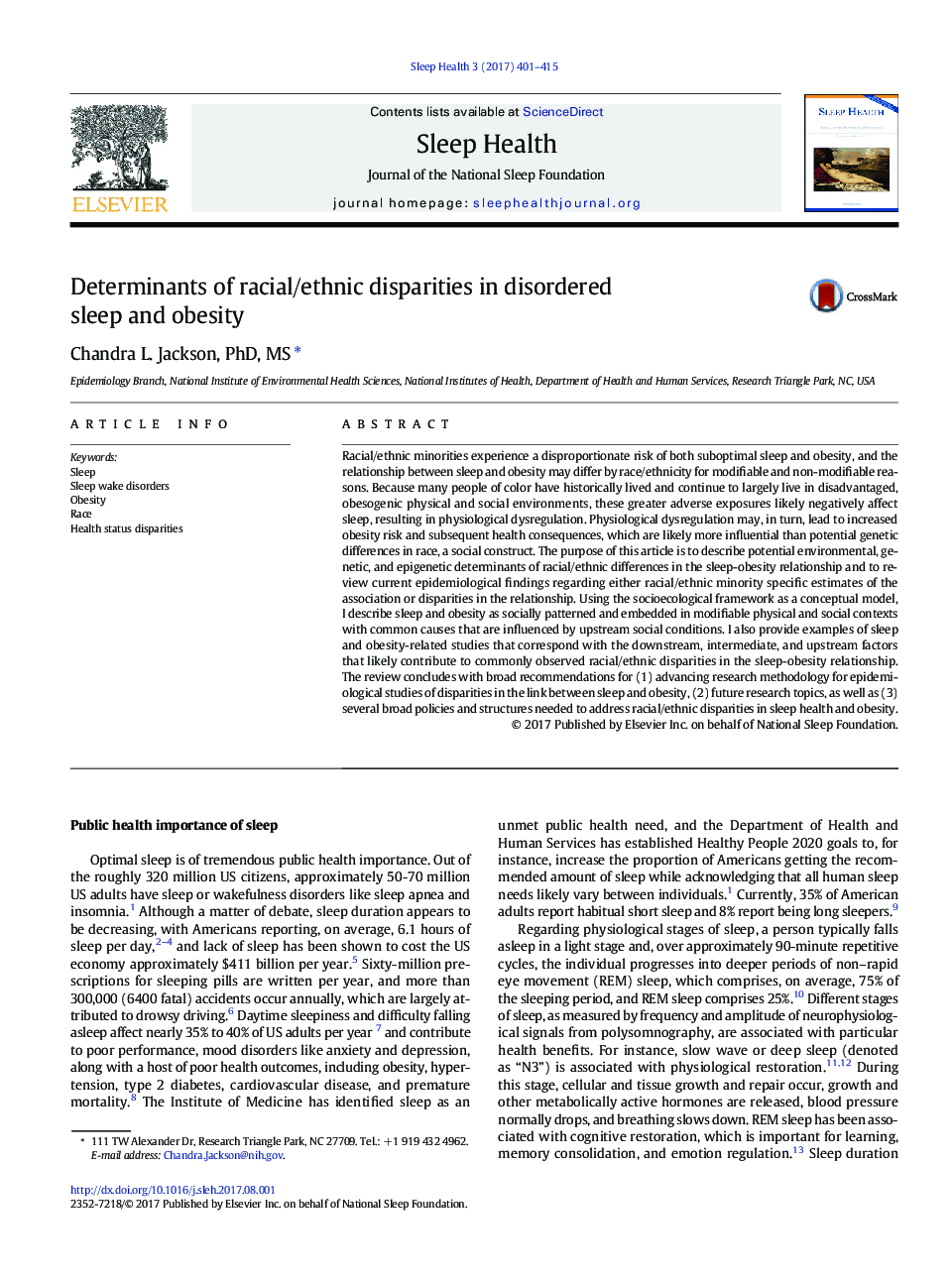| Article ID | Journal | Published Year | Pages | File Type |
|---|---|---|---|---|
| 5039500 | Sleep Health | 2017 | 15 Pages |
Racial/ethnic minorities experience a disproportionate risk of both suboptimal sleep and obesity, and the relationship between sleep and obesity may differ by race/ethnicity for modifiable and non-modifiable reasons. Because many people of color have historically lived and continue to largely live in disadvantaged, obesogenic physical and social environments, these greater adverse exposures likely negatively affect sleep, resulting in physiological dysregulation. Physiological dysregulation may, in turn, lead to increased obesity risk and subsequent health consequences, which are likely more influential than potential genetic differences in race, a social construct. The purpose of this article is to describe potential environmental, genetic, and epigenetic determinants of racial/ethnic differences in the sleep-obesity relationship and to review current epidemiological findings regarding either racial/ethnic minority specific estimates of the association or disparities in the relationship. Using the socioecological framework as a conceptual model, I describe sleep and obesity as socially patterned and embedded in modifiable physical and social contexts with common causes that are influenced by upstream social conditions. I also provide examples of sleep and obesity-related studies that correspond with the downstream, intermediate, and upstream factors that likely contribute to commonly observed racial/ethnic disparities in the sleep-obesity relationship. The review concludes with broad recommendations for (1) advancing research methodology for epidemiological studies of disparities in the link between sleep and obesity, (2) future research topics, as well as (3) several broad policies and structures needed to address racial/ethnic disparities in sleep health and obesity.
